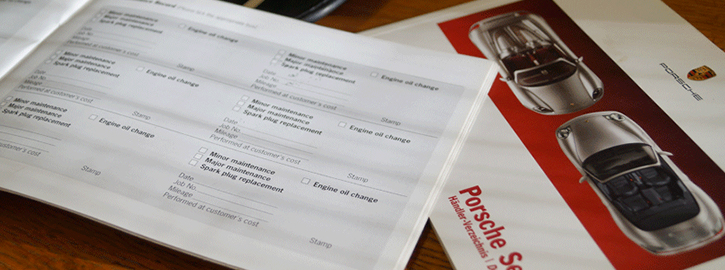5 Essential Documents for Selling Your Car Fast

When it comes to selling your car, whether for an upgrade, a change in lifestyle, or to generate some quick cash, preparation is key. Sellers often overlook the importance of having all the necessary documents in order before listing their vehicle, leading to delays, misunderstandings, and potentially lost sales. Here, we'll cover the 5 essential documents you need to ensure a smooth and efficient selling process, helping you sell your car fast.
1. The Car's Title or Ownership Document

The title is the cornerstone of your car sale. It proves ownership and is required for transferring the vehicle legally to a new owner. Here's what you need:
- Certificate of Title: This document should be clear of any liens or encumbrances, showing you as the legal owner.
- State-specific Forms: Depending on where you live, your state might require additional forms or notarization for transferring the title. Make sure these are filled out correctly.
💡 Note: If you're paying off a lienholder, ensure your car title is free of any financial obligations before you sell.
2. Bill of Sale

The bill of sale is a legal contract between you and the buyer that outlines the terms of the sale:
- Sale Price: Clearly state the agreed-upon price for the car.
- Make, Model, and VIN: Include vehicle identification details to prevent disputes.
- Conditions of Sale: Whether you're selling 'as is' or with a warranty.
A well-drafted bill of sale protects both parties by detailing the terms of the sale, ensuring that both you and the buyer understand the transaction.
3. Vehicle History Report

Trust is paramount in any sale. Providing a vehicle history report:
- Shows maintenance records, accident history, mileage, and title status.
- Can be obtained from services like Carfax or Autocheck, which can be bought by the seller to include with the sale or offered as an option for the buyer to purchase.
| Service | Features | Cost |
|---|---|---|
| Carfax | Detailed history, recall information | $39.99 - $44.99 |
| Autocheck | Auction history, scoring system | $24.99 |

4. Odometer Disclosure Statement

Federal and state laws often require an odometer reading disclosure at the time of sale:
- Ensure the odometer reading is current.
- If the odometer has exceeded its mechanical limits (generally 99,999 or 199,999 miles), it must be disclosed.
💡 Note: Be aware that some states require this document to be notarized.
5. Warranties and Service Records

Even if you're selling the car 'as-is,' having records can boost buyer confidence:
- Warranties: Document any extended warranties still in effect.
- Service Records: Gather receipts and logs from regular maintenance and repairs.
These documents reassure buyers that the vehicle has been well-maintained and might be less prone to immediate issues post-purchase.
The Wrap-Up

In closing, these five essential documents form the backbone of any successful car sale. Ensuring your title is free of liens, drafting a clear bill of sale, providing a vehicle history report, recording an accurate odometer statement, and offering warranties or service records are steps that significantly speed up the selling process. They not only reduce potential issues but also increase buyer trust, facilitating a quicker, more confident decision from buyers. With these documents at the ready, you'll be poised to sell your car with efficiency and ease, making for a satisfactory experience for all parties involved.
Do I need to get a smog certificate before selling my car?

+
It depends on your state’s laws. Some states require a smog certification as part of the sale process, especially in areas with strict emissions regulations. Check with your local DMV or vehicle registration office.
What if I lost my car title?

+
If you’ve lost the title, you’ll need to apply for a replacement through your state’s DMV. This process can take some time, so it’s best to start as soon as possible.
Can I sell my car if there’s a lien on it?

+
Yes, but you must either pay off the lienholder first or coordinate with them for a release of lien document or direct payment, allowing a clear title to be issued upon sale.
Is it necessary to draft a bill of sale if selling to a private party?

+
While not always legally required, it is highly recommended for clarity, protection, and to provide evidence of the sale for both parties.



